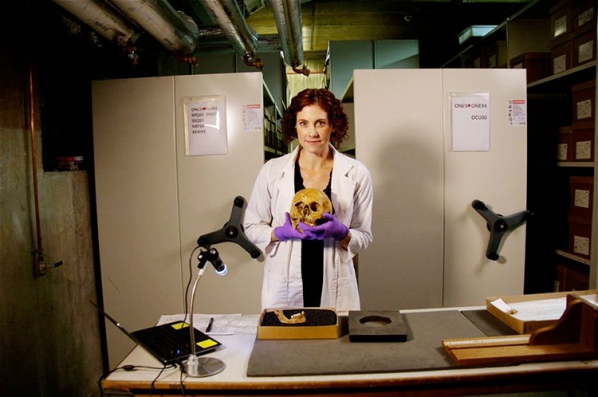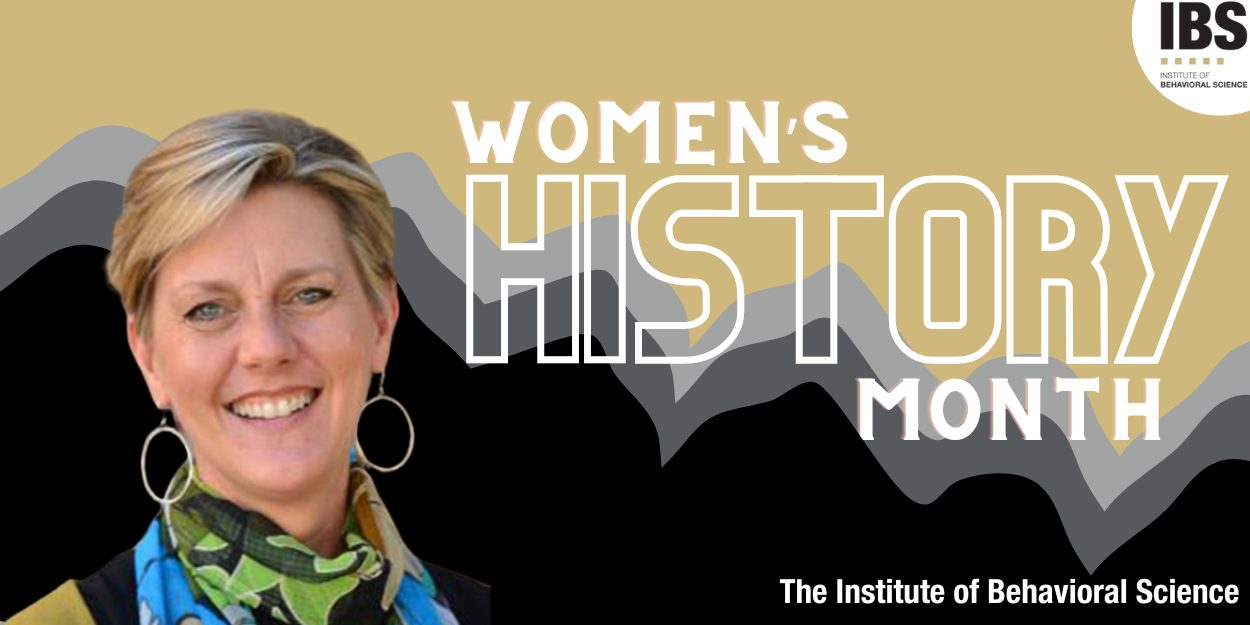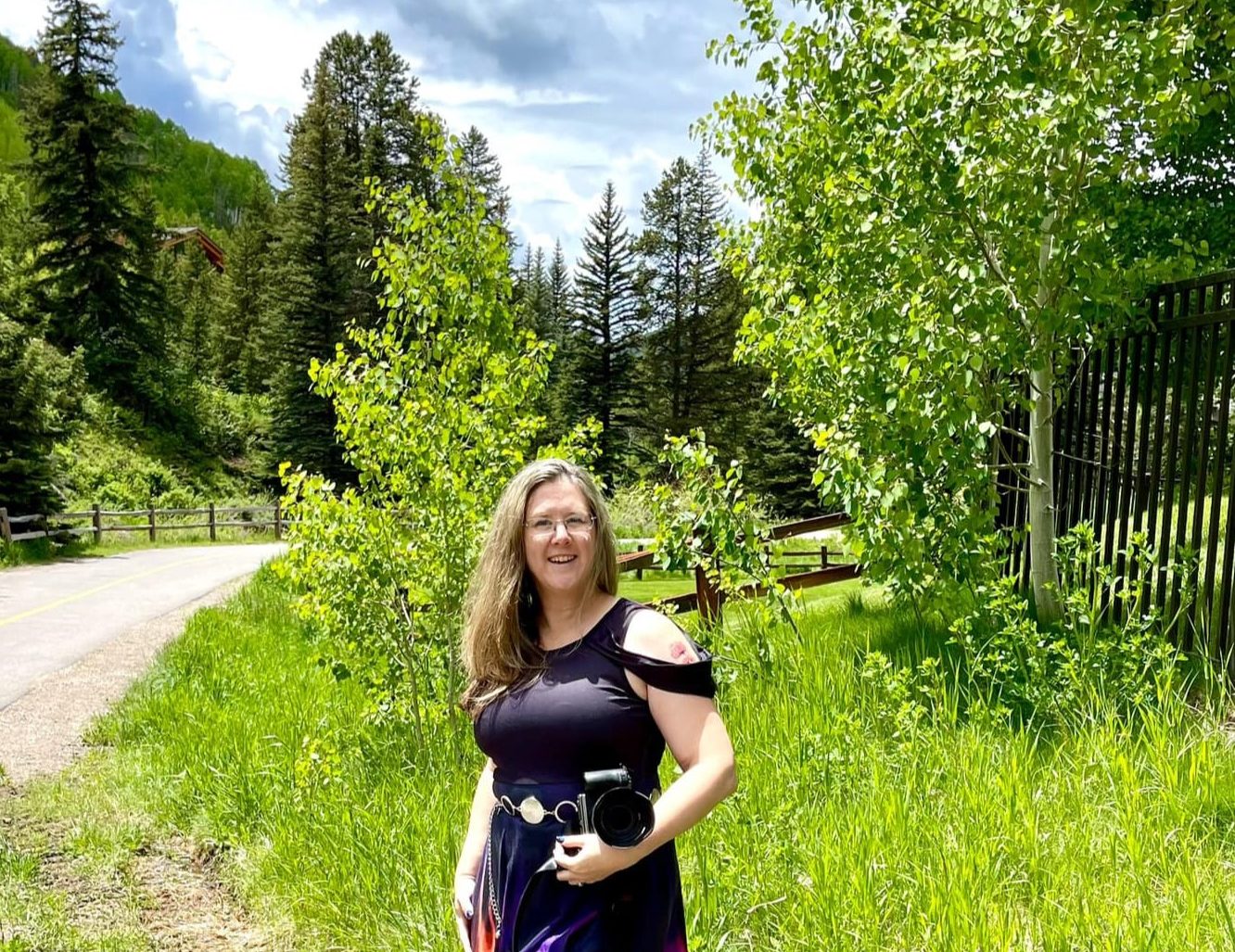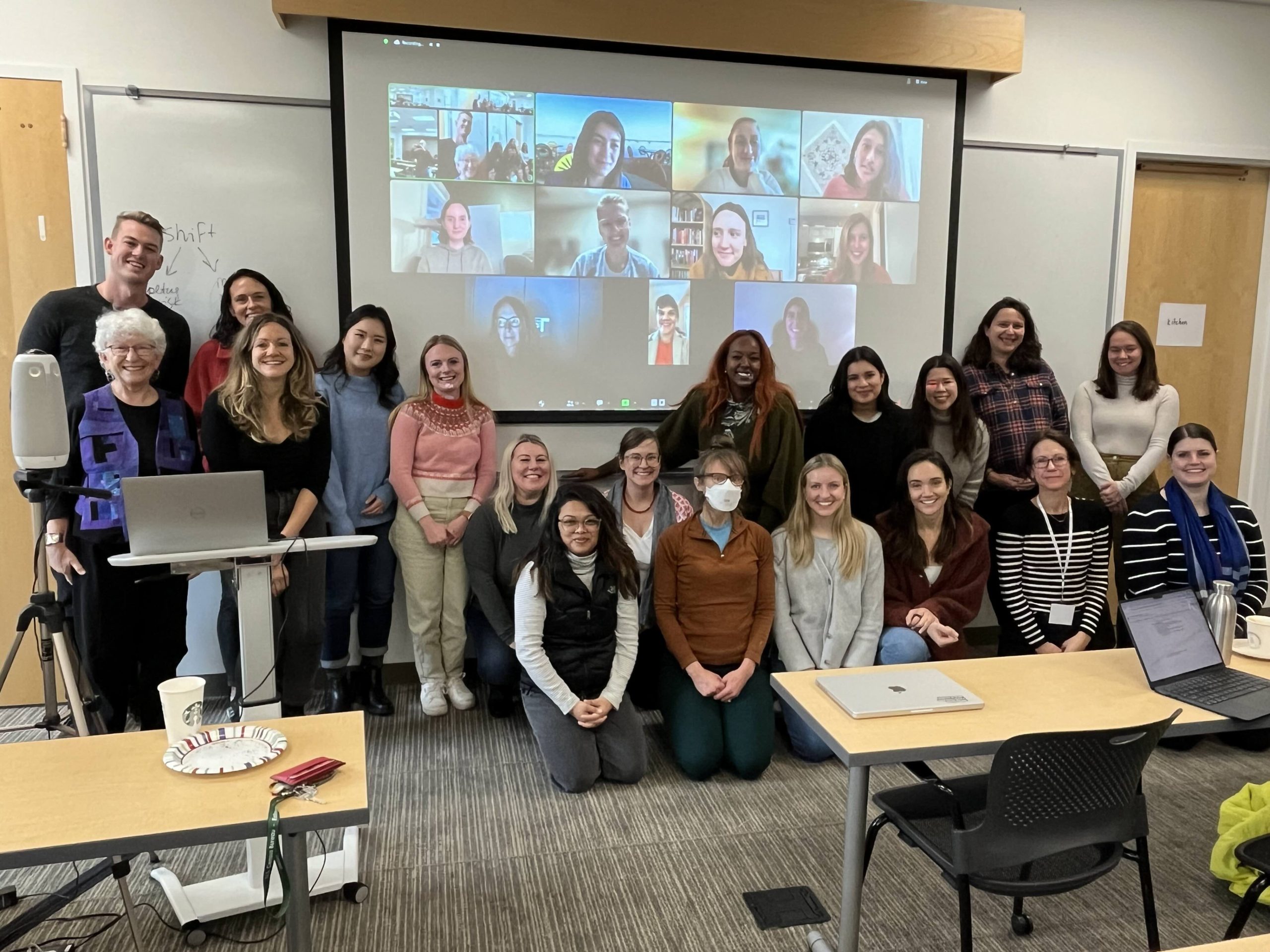Professor of anthropology and faculty/fellow of the Institute of Behavioral Science, Sharon Dewitte, was recently featured in the Coloradan Alumni Magazine. Author Lisa Marshall shares how Dewitte’s research helps us learn more about pathogens, their effects on the body, and the structural inequalities that historically led some groups to be more vulnerable to pathogens than others. Read more about Dewitte and her work in the article here.
News
All news items, blog posts, and feature stories.
Women’s History Month Feature: Lori Hunter
Next up in our Women’s History Month celebration is Director of IBS, Lori Hunter! Lori shares about her history with IBS and CU Boulder, her vision for IBS, and hints at an exciting event for IBSers in the works.
_______
When did you join IBS?
Hunter: I came to CU Boulder in 2000, after four years as an assistant professor at Utah State University following my PhD at Brown in 1997. I have been an IBS Fellow since coming to CU Boulder. I was originally affiliated with the E&S Program given my work in environmental sociology, but I eventually was also affiliated with the Population Program given my training as a social demographer and my research on population-environment interactions.
What do you like most about being director of IBS?
Hunter: Being Director of IBS is my favorite job in 23 years at CU Boulder – actually, it’s my favorite job ever! I have loved becoming more familiar with all the important and innovative research across the Institute and I so appreciate having the opportunity to advocate on behalf of our investigators doing that important and innovative research. I also enjoy reaching across campus — and beyond — to think creatively about bridges we might build to enhance our research and our impact. Finally, I’ve also appreciated the chance to think carefully about how we do our business and how the Institute might better serve our investigators and better support our staff.
What’s something you’re most excited about for IBS?
Hunter: Potential. As I look to the future, I see an Institute that has been responsive to investigator and staff concerns and is poised to step into a future that includes even greater impact and innovation. There are partnerships just waiting to happen. Some are on the Boulder campus – Engineering, Earth Lab, RASEI, CNAIS, and more. Some are at the Colorado School of Public Health – environmental health, indigenous health, rural health, and more. Some are further afield and responsive to funding opportunities at NSF, NIH, and other agencies that are seeking to develop impactful national and international collectives on substantive areas like climate & health. It is my hope that the Institute can support investigators in developing these larger scale initiatives which hold the potential to enhance the sustainability and impact of our important efforts.
What’s one thing you hope never changes about IBS?
Hunter: Community. Even though we’ve been through challenging times, I think our topical foci bring people together out of a desire to expand knowledge and impact across a vast landscape of social challenges. I also hope we have a lot of fun bowling together! (I am hoping to schedule a bowling social later this month).
________
Stay tuned for a social invite from Lori, IBSers! And check back soon for another interview!
New insights into the Roman Empire uncovered in an English village ruin
In recently published research, Scott Ortman, director of the Center for the Collaborative Synthesis in Archaeology and associate professor of anthropology, and John Hanson, associate professor of Roman archaeology and art at the University of Oxford, have uncovered a new population estimate for the ancient city of Silchester. Now a ruin, Silchester was a Roman-era village in south-central England and its peak population was largely estimated at around 4,000. However, with new excavation techniques, Ortman and Hanson’s research shows the peak population to be closer to 5,500. Blake Puscher writes more about the implications of this increase in his story in the Colorado Arts and Sciences Magazine.
Impact of early childhood health interventions in Bangladesh felt by future generations
Tania Barham, associate professor of economics, along with coauthors Brachel Champion, Gisella Kagy and Jena Hamadani, published a new paper examining the effects of the Maternal and Child Health and Family Planning Programme (MCH-FP) implemented in Bangladesh. Results showed children who experienced MCH-FP had greater height and improved cognition. Remarkably, these benefits spanned generations. The next generation of children were taller and also had greater cognition compared to peers whose parents did not experience MCH-FP.
Daniel Long from the Colorado Arts and Sciences Magazine at CU Boulder shares more about Barham’s findings here.
Women’s History Month Feature: Angela “Angie” Branson
Happy International Women’s Day from IBS! In honor of Women’s History Month, we’re interviewing some of our amazing IBS staff. Up first is Senior Program Manager, Angela Branson! Branson joined IBS in September 2022 and helps manage the Health and Society Program, the Population Program, the Program on International Development and the CU Population Center.
_______
What do you like most about your position at IBS?
Branson: I love the people that I work with along with supporting the impactful research mission of the programs that I support and in IBS as a whole.
What has been the most impactful IBS research you’ve learned about?
Branson: It’s hard to pick just one, but I’m very supportive of the research work Amanda Stevenson and the Colorado Fertility Project are doing. It seems that women’s (as well as transgender people’s) rights to bodily autonomy are currently under attack in our nation’s politics, especially at the state level in several states and I feel strongly that women and transgender people should have the right to choose what happens with their own bodies with the guidance from their personal physicians, without the government stepping in. I am also partial to any research leading to policy influence related to climate change.
What’s one thing you hope never changes about IBS?
Branson: I hope that the passion for positive change in the world through the research done and supported by IBS never changes. Every Program and Center is doing highly impactful work all striving toward a better ‘tomorrow’ by looking to the past, present and future for collaborative solutions to real world problems and I love that.
What do you like to do most outside of IBS?
Branson: My favorite pastime outside of IBS is photography. I have been interested in photography since I was a child but have gotten serious about my art starting in about 2014. I have my own company and website, Angela Branson Photography, LLC. I specialize in wildlife art photography as well as portraits/headshots and events professionally as a side gig. If anyone is interested in checking out my work, they can follow me on Instagram: https://www.instagram.com/angelabransonphoto/.
________
Tune in next week for another interview with another phenomenal IBSer!
New study coauthored by David Pyrooz correlates police pull back with crime increase
A new study shows crime accelerates when police pull back. The study, published in Criminology on February 9, found property and violent crime reports increased 27.1% and 14.3% respectively in the city and county of Denver after police scaled back their presence during the COVID-19 pandemic and following the murder of George Floyd. Read more of the story on CU Boulder Today.
Daniel Simon, Ryan Masters new study shows institutional failures increased suicide rates
A new CU Boulder study sheds light on the national upward trend of suicide rates. Authors Daniel Simon, doctoral candidate in the Department of Sociology and IBS research affiliate, and Ryan Masters, associate sociology professor and director of the Population Program, examined suicide data from 1997 to 2017. They found two institutional bodies contributing to suicide rate increases:
- Prescription drug monitoring programs, whose minimal regulations or lack of existence in certain states made access to drugs like OxyContin easier, and
- A weaker public safety net offering limited help during economic downturns.
Lisa Marshall, science writer for CU Boulder Today, tells the full story here.
Success of abortion research methods workshop reflects shift in demography, fertility research
Abortion research grapples with more questions than answers. And that’s no surprise. Fertility research as a whole inhabits only a small niche in demography and population studies and received limited attention after the “population bomb” panic in the mid-20th century. However, after the 2022 Dobbs decision, interest in abortion has grown significantly. Assistant Research Professor at IBS Leslie Root, and Assistant Professor of Sociology at CU Boulder Amanda Stevenson, took note.
“Abortion is challenging to study quantitatively, because the data often isn’t complete or isn’t there at all,” says Root. “There are a lot of basic research questions that are unanswered. That means there’s a lot of room for creative and innovative methods to make an impact.”
Root and Stevenson, along with Research Professor Jane Menken, Director of the CU Population Center and Professor of Health and Behavioral Sciences at CU Denver Sara Yeatman , and IBS Fellows Stefanie Mollborn and Katie Genadek, organized a first-of-its-kind workshop. Held December 6-8, 2023, the workshop addressed the gap in support and training on abortion research methods for early career researchers.
Two classes of research methods were covered at the workshop: microsimulation and life table methods. The workshop included technical training on methods for analyzing issues related to abortion and scientific presentations by senior abortion researchers.
Seven leading fertility researchers presented at the workshop, including Menken.
“I was delighted by the excitement and commitment of the young researchers at the workshop,” said Menken. “They know in their very bones how important it is to understand the impacts of changing access to abortion and contraception today. And that’s exactly what we, as fertility researchers, need to be doing.”
Menken pioneered mathematical models of reproduction and fertility analysis techniques over 50 years ago. Her work shifted the focus away from birth as a singular event and emphasized family building as a process, revolutionizing the way demography treats fertility. The renewed relevance and potential for Menken’s techniques to be used for abortion research today is “so gratifying and even amazing,” to Menken.
“We’re applying these methods to our scholarship now, and with them we can investigate questions that seemed impossible to answer for decades,” says Stevenson. “The work that Jane did was truly amazing and really focused on people’s lives in a way that demographers don’t always do.”
A total of 26 early career researchers attended the workshop, with 10 participating remotely. Participants were committed to addressing social inequality and believed the new demographic methods they learned would expand their own research. Participants also hoped to connect with other researchers working on reproductive health.
“This workshop provided me with insights into numerous interesting and important issues in reproductive justice,” says Hoeyun Kwon, a postdoctoral associate at IBS. “Additionally, I was very impressed and inspired by the passion and tremendous efforts of the workshop organizing group, particularly Leslie and Amanda.”
With the workshop’s success, Root and Stevenson hope to continue the event next year.
“I would love for this workshop to mean that the newest generation of demographers are well-trained in thinking about abortion as part of a demographic process, and about what that means for how we study it, model it, and generate new insights about it,” says Root.
Pamela Buckley and Blueprints for Healthy Youth Development Cited as Top Clearinghouse Research
Blueprints for Healthy Youth Development was cited in a Lund Report article as one of the top clearinghouses in prevention research. The article features Principal Investigator of Blueprints, Pamela Buckley. Buckley shares how complicated it can be in determining which prevention programs work, but that clearinghouses like Blueprints help translate the evidence to support users in making decisions when investing social programs. Read more of the article, written by Emily Green here.









